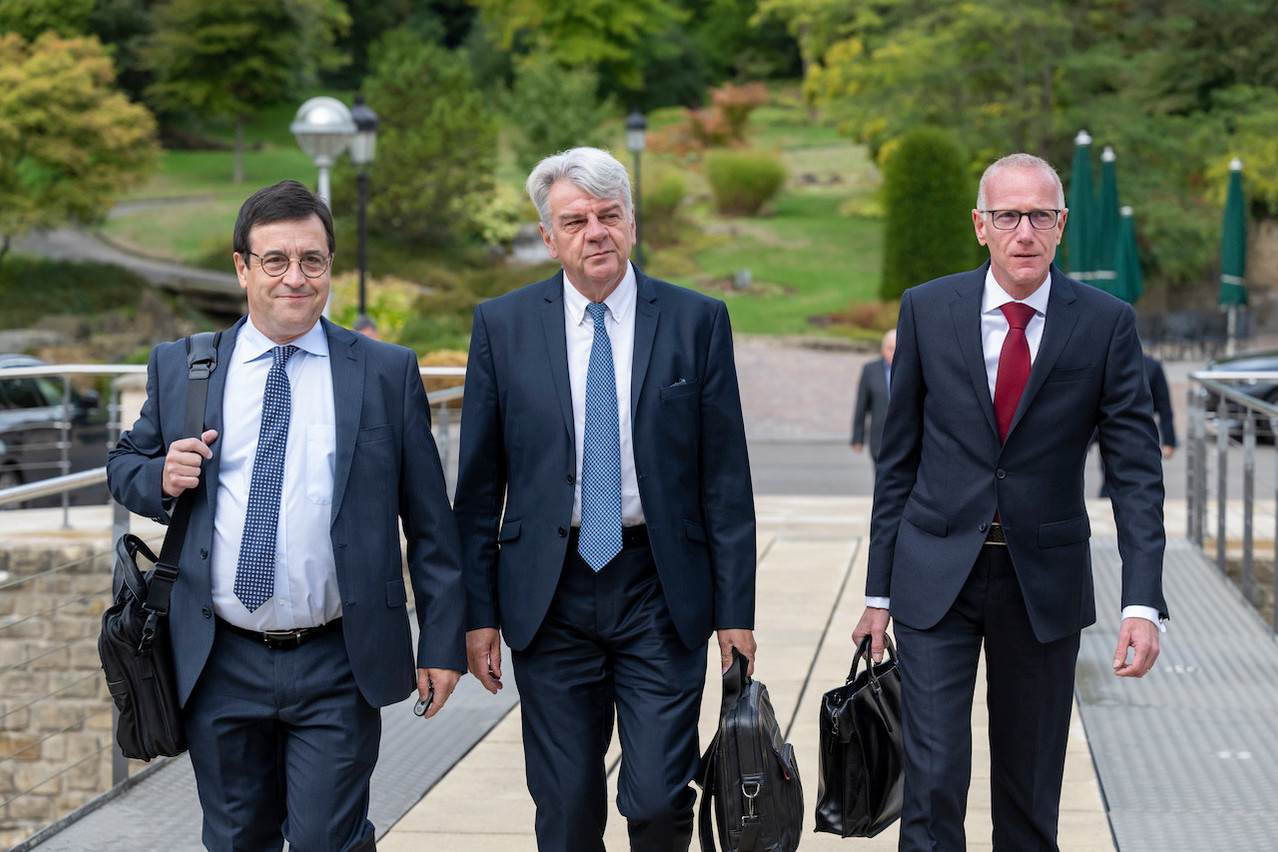Prime minister Xavier Bettel will be a relieved man as he heads back to Luxembourg from his trip to the United Nations general assembly in New York and the funeral of former Japanese prime minister Shinzo Abe in Japan. The that Bettel and his government spent three days last week hammering out with employer and trade union representatives will be waiting for his signature when he steps back into his office off the place Clairefontaine.
Bettel will address parliament at 4pm on Wednesday after the agreement has been signed between the government, the three unions and the UEL employers’ association.
Once again, the national tripartite represents the strength of the Luxembourg social model…
The deal struck last week was always likely to be approved by the negotiating partners, but it still required formal approval from the membership of Luxembourg’s three major trade unions, the OGBL, LCGB and civil servants’ union the CGFP.
The LCGB had already voted in favour of the deal on Monday, leaving its president to sing the praises of the Luxembourg model of finding consensus via the tripartite. “The measures decided represent an ambitious, balanced package adapted to the current crisis situation and to the unpredictability of socio-economic developments in the coming months,” said Dury as he also welcomes the “commitment” of the trade union negotiators.
Not taking action would have been the wrong option
On Tuesday, the CGFP national executive unanimously approved the tripartite agreement. The civil service union also praised the united front that the three unions had presented. “Thanks to their negotiating skills, the CGFP delegation, together with the other two unions, has repelled numerous attacks on important social achievements,” the executive said in a statement. It argued that the fact the agreement helps out households as well as businesses was “very satisfactory” and was the responsible decision. “Not taking action would have been the wrong option,” the union said.
Like the other two unions, the CGFP particularly welcomed the preservation of the indexation mechanism that automatically triggers salary increases when inflation reaches 2.5%. “The continuation of this tried-and-tested crisis instrument will prevent even more households from drifting into the poverty line and widespread social unrest”.
Social selectivity
But the CGFP took umbrage at suggestions – which have come from sections of the OGBL among others--that the tripartite deal is “not social enough” in that it delivers assistance across the board rather than focusing on helping households facing real hardship and individuals in precarious financial situations. “The agreement reached certainly includes social measures such as the capping of prices for old-age and nursing homes or the continuation of the energy premium and the inflation allowance,” the CGFP stated. “Both measures will be extended by one year, which can be applied for by around 30,000 households.”
The OGBL, which had not been a signatory to the last tripartite agreement reached in March, has now also approved the new deal despite some reservations. It’s president Nora Back said that she could understand criticism of the lack of social selectivity in the cap on energy prices but explained that the need to expedite the deal meant that there was no time to hold long discussions about the criteria of who should be helped and by how much. However, the OGBL has said it wants the brake on gas prices to be introduced as quickly as possible, preferably still in October.
Read also
Tax reform
Meanwhile, the civil service union ended its statement with a warning that its approval of the tripartite deal did not mean it was relaxing its demands for adjustment of the tax table to inflation. “The last (partial) adjustment took place 13 years ago, and households have lost a lot of purchasing power over the years,” the CGFP claimed.
Indeed, tax reform was one of the pledges made by the current government when it came into power in 2018, but a new tax bill is unlikely now to be presented to this parliament. Former finance minister in May 2021 said that any “structural tax reform” had been put on ice. The government says that dealing with the health and economic impact of the covid pandemic had taken priority.
